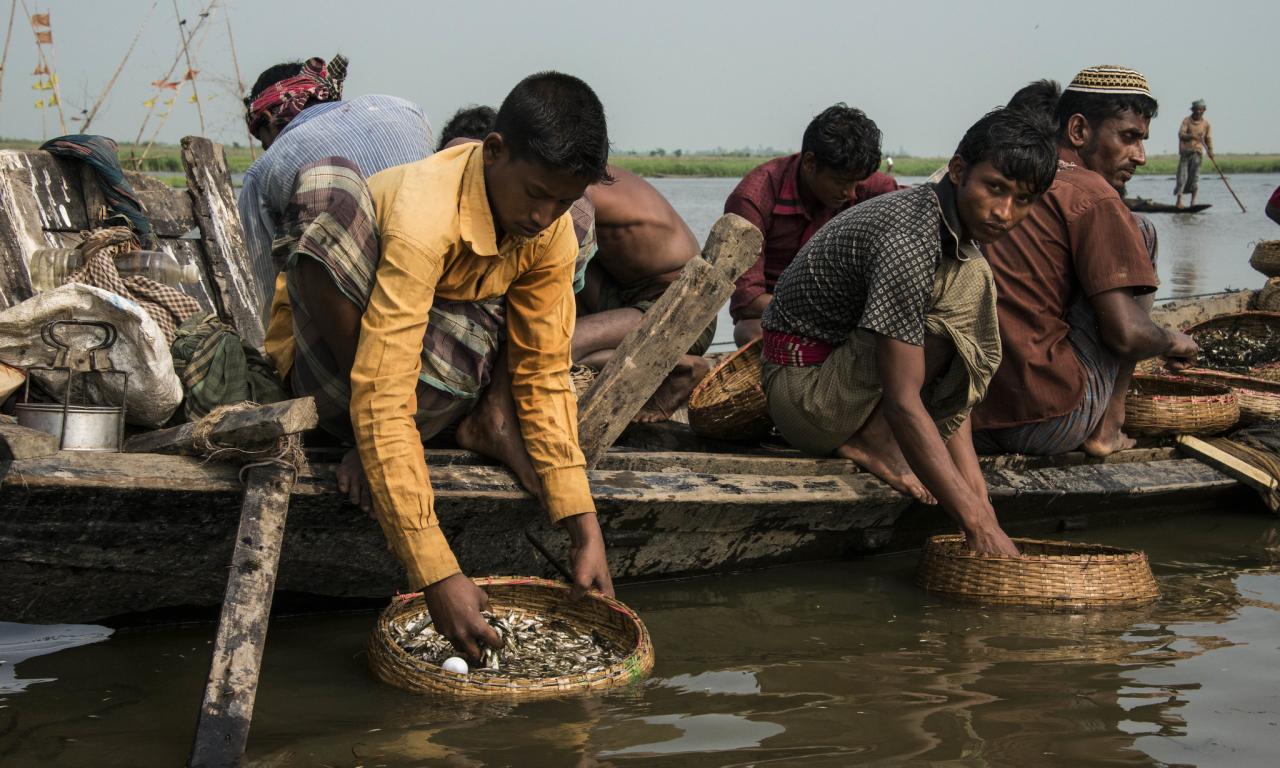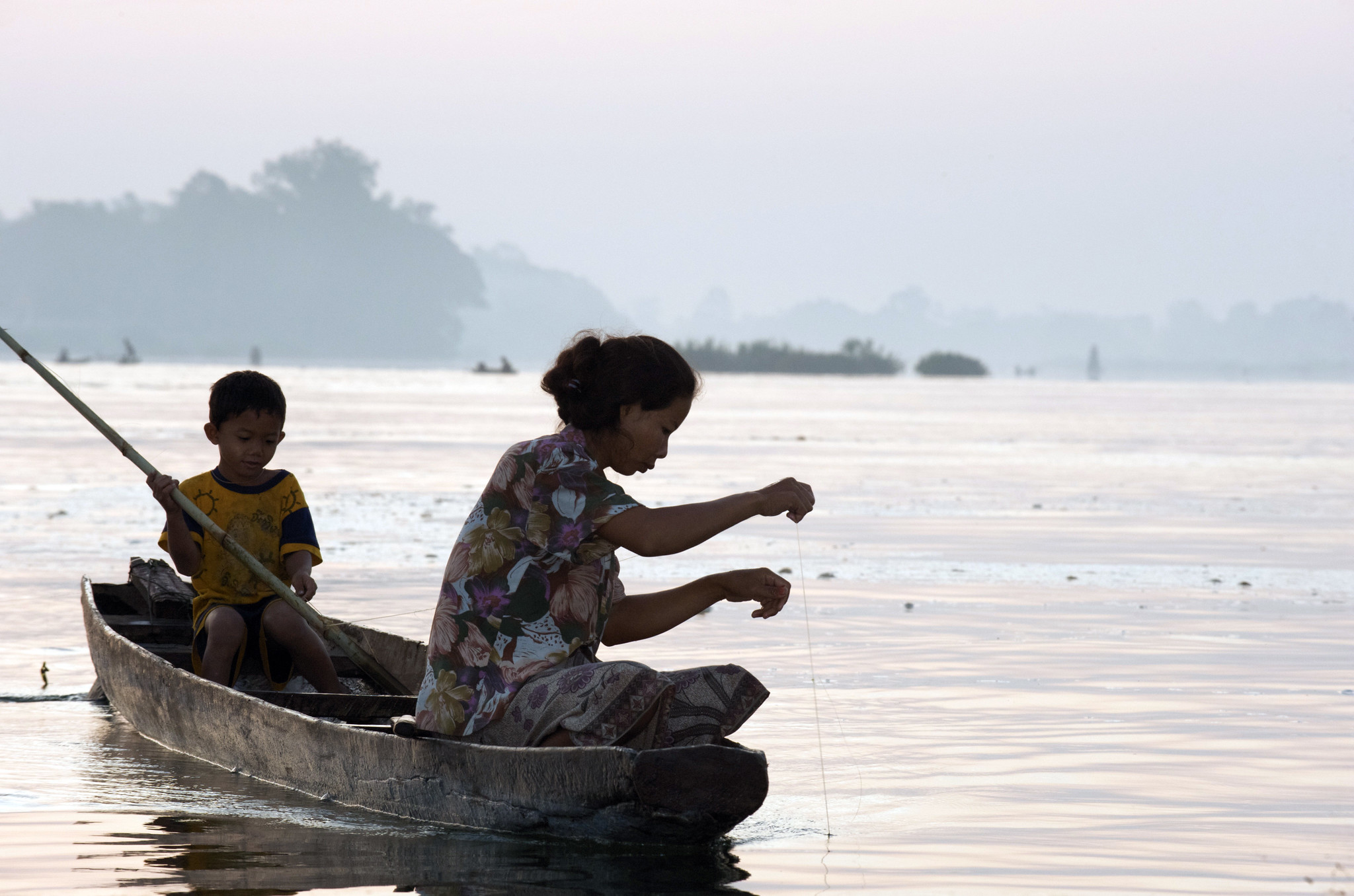
- Small-scale aquatic food producers, processors and traders are integral to food and nutrition security in low- and middle- income countries, but their contributions are often undervalued and underreported
- A diversity of systems and value chain actors is key to building food systems resilience
Around the world, small-scale fisheries and aquaculture have an outsized impact on human health and the economy. Although smaller than industrial operations when considered separately, they produce the majority of aquatic foods intended for human consumption and land over half of the world’s fish catch. The diversity of people, production and harvesting methods, processing pathways and trade corridors are integral to food and nutrition security, but their contributions are often undervalued in research and policy.
Actively managing for the diversity of aquatic foods—the animals, plants and microorganisms caught and farmed in waters—and their different production, supply and governance systems is key to further harnessing their potential. From marine capture fisheries to aquaculture systems in fresh water bodies, these aquatic food systems are integral to local diets, livelihoods and cultures.
Yet these diverse small-scale fisheries and aquaculture actors and activities are often overlooked in policies and by decisionmakers, despite providing livelihoods for more than 800 million people and sustenance for a billion people worldwide, according to a new research study.
In Harnessing the diversity of small-scale actors is key to the future of aquatic food systems, one of five initial scientific papers published as part of the Blue Food Assessment, 30 authors call for a better understanding of the diversity, resilience and opportunities of the small-scale fisheries and aquaculture sector. The scientists also made the case for ramping up action and investments across the full range of this sector.
“This study reveals the remarkable diversity of small-scale actors in aquatic foods systems globally, whether small-scale fisheries or aquaculture. Ensuring recognition and support for small-scale actors can play a crucial role in designing tailored policies that facilitate a food systems transformation,” said Ben Belton, co-author and global lead for social and economic inclusion at WorldFish.
Drawing on 70 case studies from around the world, the research stressed the value of small-scale aquatic food producers, traders and processors. The values these actors bring to food and nutrition security and livelihoods have been particularly evidenced during the COVID-19 pandemic. Small-scale actors quickly filled the gap left behind by larger, international producers and corporations who scaled back operations.
Support for local actors in diverse aquatic food systems offers the potential to improve the supply and consumption of culturally appropriate, nutritious fish and other aquatic foods that can have great impact on human health, explained Rebecca Short, a lead author of the paper and post-doctoral researcher at the Stockholm Resilience Centre.

Yet smaller-scale actors face an uneven playing field that has not been addressed by policymakers. These include subsidies that are directed only towards larger scale operations and a lack of support to deal with the rapidly intensifying effects of climate change.
Shocks to small-scale fisheries and aquaculture, without the help of better policy and governance, could threaten the food and nutrition security of millions worldwide. These risks are particularly prominent in regions vulnerable to food insecurity and the impacts of climate change, the paper argues.
The analysis also highlights that women are central to a global food systems transformation towards more healthy, resilient and sustainable diets.
“There is no single vision of what a food system transformation will entail. This paper illustrates the diversity of actors, livelihoods, supply chains, species and governance systems that underpin aquatic foods. In this paper, we argue that such diversity is a key food system trait,” said co-author Philippa Cohen, research program leader for resilient small-scale fisheries at WorldFish.
The paper highlighted the need to encourage and support the diversity of small-scale actors and ensure that technology, investments, and policies can enable small-scale fisheries and aquaculture to continue producing and distributing diverse, quality and nutritious aquatic foods that reach millions of people into the future.
“Our paper makes an argument that to maintain and enhance resilience in future transformations towards improved food system sustainability, equity and health, we will need to continue to support the great diversity of production systems, products, processing techniques and distribution channels of aquatic foods,” said Eddie Allison, one of the paper’s co-authors and the director of science and research at WorldFish.
Read the paper to learn more about the diverse roles of small-scale aquatic food producers, processers and traders and the actions needed to strengthen their resilience to environmental and economic shocks.
The Blue Food Assessment is an international joint initiative bringing together over 100 scientists from more than 25 institutions. Led by the Stockholm Resilience Centre at Stockholm University, Stanford University, and EAT, the Blue Food Assessment supports decision-makers in evaluating trade-offs and implementing solutions to build healthy, equitable and sustainable food systems.
WorldFish has been a key research contributor to the Blue Food Assessment, with seven of its scientists among the authors of the papers released. WorldFish has guided the direction of the study through representation on the Blue Food Assessment Scientific Leadership Team by Eddie Allison, director of science and research, Shakuntala Thilsted, global lead for nutrition and public health, and Mike Phillips, director of aquaculture and fisheries science for CGIAR Research Program on Fish Agri-Food Systems (FISH).
